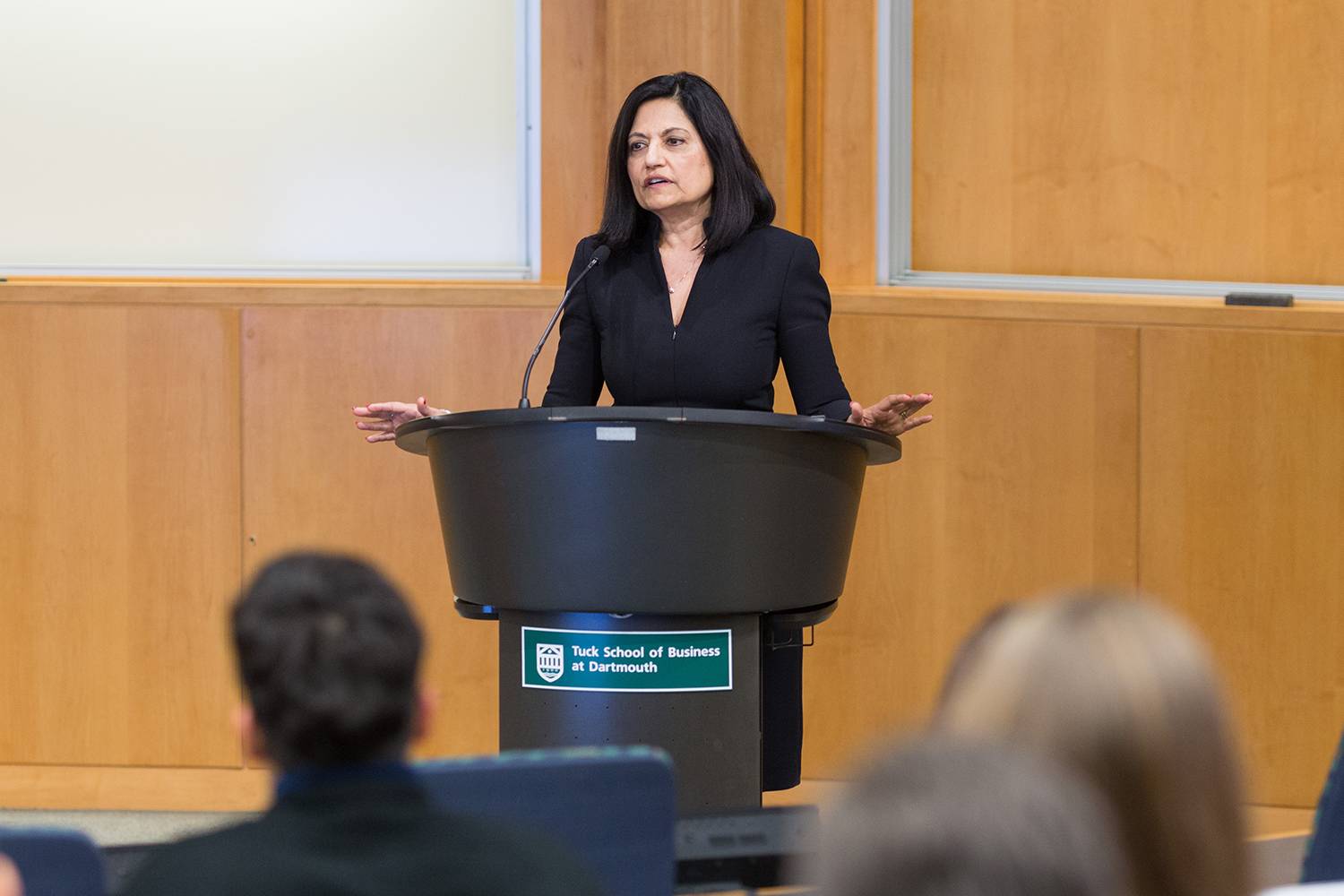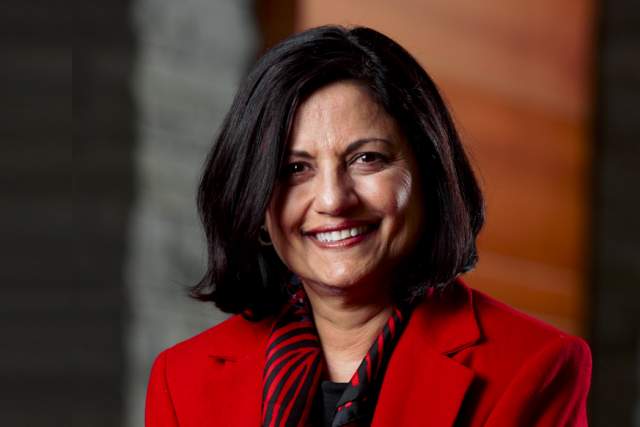Punam Anand Keller Named Consumer Research Fellow
Keller, the Charles Henry Jones Third Century Professor of Management and associate dean of innovation and growth, is now a fellow of the Association for Consumer Research.

Keller’s research examines how decision making can impact a consumer’s health and finances.
At its annual conference in October, the Association for Consumer Research (ACR) named Punam Anand Keller, the Charles Henry Jones Third Century Professor of Management and associate dean of Innovation and Growth, a fellow of the organization.
The ACR’s mission is “to advance consumer research and facilitate the exchange of scholarly information among members of academia, industry, and government worldwide,” and the fellowship is an award the ACR has given to 39 researchers since 1979, for “significant impact on scholarly work in consumer behavior.”
For Keller, a social marketer who researches consumer decision making in the areas of health and financial well-being, becoming an ACR fellow is “recognition and a huge honor,” she says. “I feel very privileged to be part of a select group of academics who have an impact on the field of consumer research.” In fact, that select group includes people who taught Keller while she was studying for her PhD at Northwestern: Sidney J. Levy, Brian Sternthal, and Alice Tybout.
Keller was first exposed to consumer research as an MBA student in India. She immediately recognized the many unknowns about the psychology of consumer decision making, and posited them as a “massive challenge that I would never be able to conquer,” she says. “It’s a little bit like golf: you know you’ll never be able to figure it out, and I find that inherently motivating.”
The study of decision making can take many forms. There are academics who study how managers make decisions in the workplace, and how people make decisions in their everyday lives. Keller chose to study consumer decision making for its moral imperative: to gain insights that can help people become healthier and more financially secure. Some of Keller’s recent papers illuminate this approach. In a paper forthcoming in the Journal of the Association of Consumer Research, she studies how sadness and anxiety influence risk taking. In a study published in the Journal of the Association of Consumer Research in 2016, Keller examined how plate material impacts food consumption and waste. And Keller has published numerous papers and book-chapters on effective health communication and methods of enhanced active choice—or how to nudge consumers towards good decisions.
The purpose of theory is to solve problems, not to remain on the pages of a book or journal. So if you don’t test it and see how, when, and why it works, then you haven’t met the objectives.
This type of research has only recently gained wide recognition as scientifically equal to areas such as physics or chemistry. Just this year, for example, American economist Richard Thaler won the Nobel Memorial Prize in Economic Sciences for his work elucidating the inherent irrationality of human behavior. The news of Thaler’s award was a kind of vindication for Keller. “I’m very glad I embarked on this journey,” she says, “because it’s becoming increasingly important.”
Keller has spent more than half of her academic career at Tuck, a school that, along with Dartmouth, fosters an uncommonly expansive approach towards academic research. For example, Keller has always felt encouraged and supported in her endeavors to do both empirical and theoretical research. In fact, Keller often mixes the two. She starts with a generally accepted theory and does empirical testing to see how it actually works in the real world. Usually she finds “boundary conditions,” where the theory falls short, so she proposes a revised theory that accounts for the nuances of human behavior. “The purpose of theory is to solve problems,” she says, “not to remain on the pages of a book or journal. So if you don’t test it and see how, when, and why it works, then you haven’t met the objectives.”
The Dartmouth community is also a place that encourages collaboration across academic disciplines. Keller, for example, has done research with professors in the Economics department at Dartmouth (on financial decision making) and at the Geisel School of Medicine (on health-related questions). This kind of multi-disciplinary work often ends up being published in journals outside of Keller’s marketing focus, but that has never been a limiting factor for her. She recalls Dean Emeritus Paul Danos walking the halls in the evenings and talking to professors about their research. “He always asked tons of questions,” she says. “He was intrigued by the problems you were going to solve, rather than the way you were going to publish it.” That spirit continues today under Dean Matthew J. Slaughter, Keller notes.
As a fellow of the ACR, Keller is now a lifetime member of the organization, and she plans to continue generating insights on consumer decision making and sharing them with the world. At the same time, Keller wants to use her standing as a fellow to inspire other budding academics to consider consumer research as a career.
“This award is a signal that says, ‘If you’re doing this kind of rigorous and relevant work, it will be recognized and you will be rewarded for it,’” Keller asserts. “It’s not going to change what I do, but I’m motivated to do more of what I do.”

